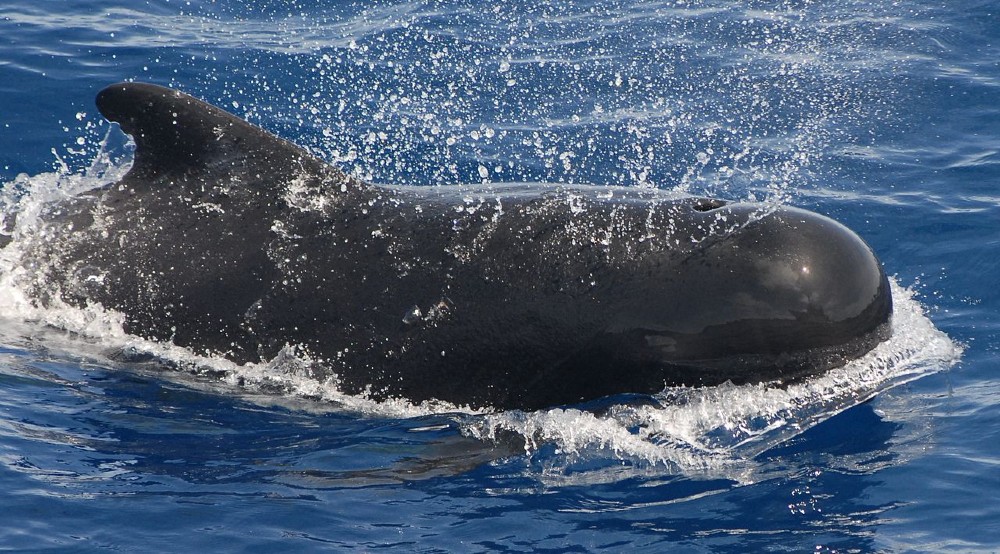For humans, they say imitation is the sincerest form of flattery.
It’s also a good way to get yourself an F in class.
But in nature, it can come in handy.
Take, for example, this new finding from a team out of New Curtin University in Australia, which found that pilot whales appear to imitate one of their predators, tricking them away from the hunt.
The researchers recorded the calls of long-finned pilot whales in the Southern Hemisphere from 2013 to 2017.
It’s not news that whale calls are extremely complex.
But what was surprising was that they found three new vocalizations that hadn’t been heard before.
And they discovered that these pilot whales made calls that sounded like the Australian killer whale, which both competes with pilot whales for food and also eats them.
The term here is called duetting; think of when one bird makes a call and then another repeats the call, or otherwise answers it.
Some birds and primates engage in duetting – it’s good for bonding – but the researchers think in this case, the pilot whales are putting on a show for the killer whales, so they don’t think there’s prey nearby or leftover food to scavenge.
And if a slot opens up for a pilot whale in the cast of Saturday Night Live, all those imitations mean they’ll be ready for auditions.
Here’s a story of some animals with a bright idea, or maybe not: a neighborhood in Ottawa, Ontario, is missing some of its holiday lights, because squirrels have been taking them!
Several families say that squirrels have been chewing LED bulbs off light strings and running off with them.
Why, we don’t know, but until we figure it out, the families say they’re probably moving all their lights indoors.
Pilot whale study reveals copycat calls to outsmart predators (Science Daily)
Red squirrels going nuts for Ottawa couple’s Christmas lights, but reason remains a mystery (CBC)
Join us on Patreon for $1 a month!
Pilot Whale photo by Adam Li, NOAA/NMFS/SWFSC.

